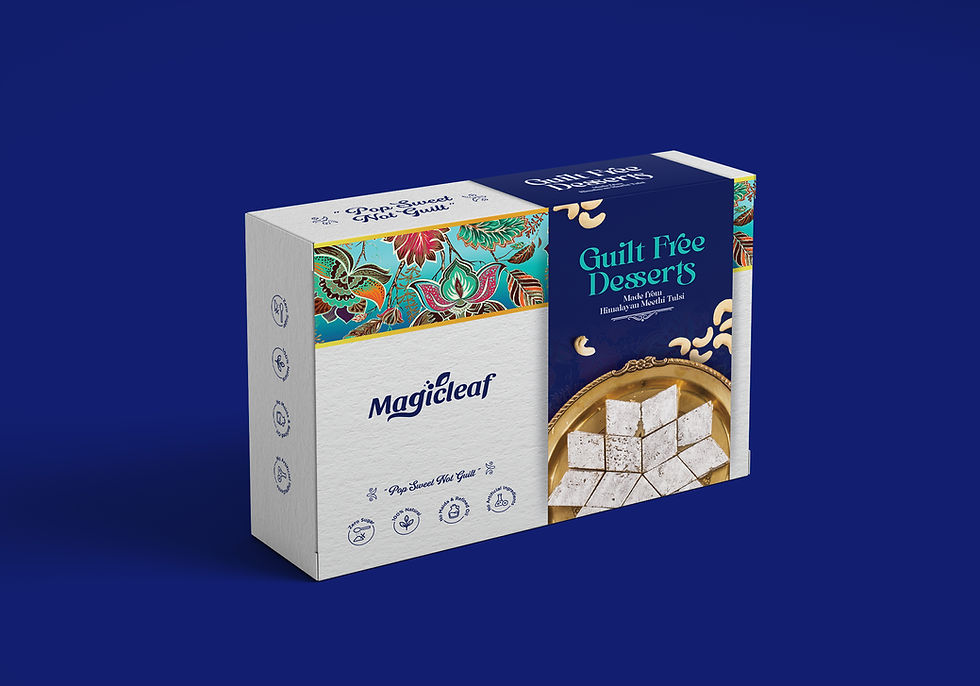How to Create a Powerful Brand Strategy in 7 Steps
- Brindha Dhandapani
- Jul 3
- 3 min read

Why Brand Strategy Is Your Business Superpower
Let’s be honest—great products alone don’t win anymore. In a world flooded with choices, people don’t just buy what you sell—they buy why you sell it, how you present it, and who you are as a brand. That’s where brand strategy comes in.
Whether you’re launching your first business, evolving your side hustle, or rebranding something big, a clear strategy helps your brand stick in minds and hearts. Let’s break it down into 7 powerful, proven steps.
Step 1: Define Your Brand Purpose, Vision & Mission
Before you jump into logos or slogans, step back. Ask yourself: Why does this brand exist?
Here’s how I guide my clients through this:
Purpose – What’s the deeper reason for your brand?
Vision – Where do you want to take it in 5, 10, or 20 years?
Mission – What do you do every day to bring that vision to life?
Example:
Purpose: Empower everyday creators.
Vision: Become the most accessible design tool globally.
Mission: Help anyone design anything beautifully and simply.
Your purpose is what people remember. Vision drives decisions. And the mission keeps the team aligned.
Step 2: Get Laser-Focused on Your Audience
The brands that win aren’t louder—they’re more relevant.
To do that, you need to know your audience better than they know themselves.
Build personas with:
Age, gender, profession
Values and lifestyles
Pain points and goals
Online behavior (Where do they hang out? What are they searching for?)
Tools I use:
Surveys
Google Analytics
Instagram Insights
Competitor reviews
The more precise you are, the more powerful your messaging will be.
Step 3: Do a Full Brand Audit
Already have a brand? Or a few competitors in sight? Time to audit.
Here’s what to evaluate:
Visuals: Is your logo modern, adaptable, and unique?
Messaging: Is your tone consistent across platforms?
Website: Does it load fast? Is the brand story clear?
Competitors: What are they doing well? Where are they falling short?
Your goal: Understand what’s working, what’s broken, and where you can truly stand out.
Step 4: Position Your Brand in the Market
Now that you know where you are and who you’re talking to, it’s time to claim your space.
Start with a positioning statement like this:
[Your brand] is the [category] that helps [target audience] achieve [benefit] because [proof].
Example:
We’re not just skincare. We’re the eco-conscious skincare brand that helps women ditch chemicals without losing results.
Also define:
Unique Value Proposition (UVP)
Brand Differentiators
Emotional benefits (not just features!)
Step 5: Develop Your Brand Voice & Personality
Think of your brand as a person. How do they speak?
Are they warm and quirky like Mailchimp? Or bold and aspirational like Nike?
Define your brand’s tone:
Friendly and casual?
Professional and informative?
Witty and bold?
Then create brand voice guidelines—a cheat sheet for every writer, marketer, or designer to keep your tone consistent everywhere.
Step 6: Craft a Distinct Visual Identity
This is where most people start—but really, it should follow the strategy.
Design is more than aesthetics—it’s how you visually communicate your personality and values.
Your identity system should include:
Logo (primary, secondary, responsive)
Color palette (primary, secondary, neutral tones)
Fonts (headlines vs body text)
Imagery (photography style, icon design)
Layout and spacing guidelines
Document it all in a brand style guide. Trust me—it saves time, money, and endless revisions.
Step 7: Activate Your Brand Across Every Touchpoint
Your brand now lives and breathes. So let’s roll it out strategically.
Activation checklist:
Update your website and mobile app
Design social media templates and profiles
Refresh business cards, presentations, and invoices
Train your customer service team on your brand voice
Create brand intro decks or onboarding kits
Final Thoughts: Brand Strategy Is a Journey
The most successful brands don’t just look good—they’re built on clarity, connection, and consistency.
And here’s the truth: strategy isn’t a luxury. It’s a must—whether you’re building a personal brand, a DTC product, or a B2B tech company.
A good brand gets attention. A great brand builds trust. A legendary brand builds loyalty.
“A logo is what people see. A brand is what they feel. Strategy connects the two.”




Comments